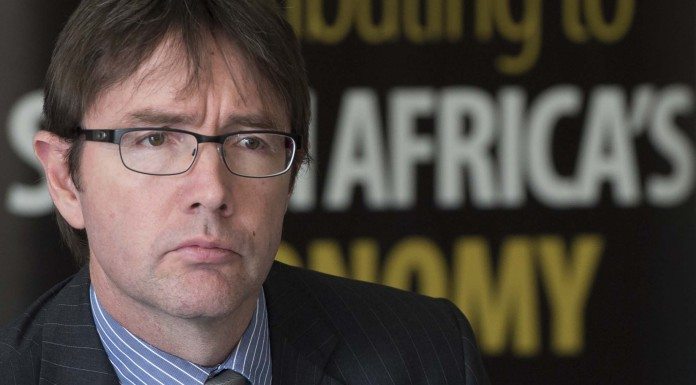
DISCUSSIONS regarding a fresh version of South Africa’s mining charter were “flawed” and failed to absorb industry concerns, said Roger Baxter, CEO of the Chamber of Mines.
Commenting on meetings between the chamber and the government since the shock parliament gazette of a new mining charter in April, Baxter expressed grave concerns about the consultative process. He said government had ignored the mining sector’s reservations regarding the proposed charter.
“As far as we can tell, the Department of Mineral Resources (DMR) has taken none of these issues on board and clearly the meetings were limited ‘consultations’,” said Baxter. The DMR had “little appetite to hear the industry’s concerns,” he added.
One of the issues to which Baxter refers is thought to refer to concerns the mining sector has regarding the DMR’s interpretation of the principle of ‘once-empowered, always-empowered’. The industry was also worried about certain strides that were claimed by the DMR regarding community investment in the mining charter.
Speaking in parliament, Mosa Mabuza, deputy-director (DDG) for mineral and policy promotion, hailed the imminent gazetting of a negotiated mining charter saying it was “materially different” from the original draft.
Baxter, however, had a radically different view.
“We note the DMR DDG’s points made in parliament today [November 16] regarding the DMR version of a draft charter. Unlike previous charters, where stakeholders in MIGDETT worked together to produce a stakeholder-agreed proposal, the DMR chose this time to produce its own draft without properly engaging any stakeholder other than receiving submissions,” he said.
MIGDETT is an acronym for the Mining Industry Growth Development and Employment Task Team and was developed to steer consultations on issues relating to policy, among other matters, involving the industry, government and unions.
Baxter said the chamber had met the DMR on only two occasions since April. In both meetings, the chamber raised specific areas of concern. The main concern is whether past empowerment deals, whether they succeeded or not, should be recognised by the DMR.
A reckoning of BEE transactions between 2004 and 2014 was construed by the Chamber of Mines as a complete success. It believed the mining sector had exceeded the targeted 26% empowerment as set down in the charter at the time.
The DMR had a different view claiming the mining sector had achieved well below the 26% target – a view based on the notion it didn’t accept empowerment deals where the empowerment partners had sold their shareholders, or where the deals had failed as a result of declining commodity markets.
Consequently, the chamber and the DMR set about seeking a joint declaratory order from the High Court on whether failed or realised empowerment deals ought to be recognised. The DMR, for legal technical reasons, withdrew from the joint declaratory order and has since sought an out of court resolution.
“While the chamber has been engaged in discussions with the DMR on the BEE ownership issue in the mining charter pending proceeding with the declaratory order application, the last meeting of the principals took place in July 2016,” said Baxter. “Despite the chamber providing detailed inputs on the issue in September, no further meetings have taken place,” he said.
As far as Chamber of Mines’ comments go, this is damning. It means that the charter – which may be published next month, according to Mabuza – has almost no material alteration on key issues from the document produced in April.
Baxter said it would be difficult to “… accede to an outcome based on a flawed process and a DMR that does not want to take on board the substantive issues that the industry is concerned about”.
The exact content of the mining charter is, as yet, unknown. But South Africa’s mining sector faces another prolonged, exacting period of uncertainty if the proposed legislation contains the inconsistencies referred to by the chamber.











